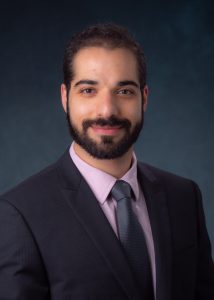
- This event has passed.
IBS Speaker Series: Short-term Forecasting of COVID-19 using Spatiotemporal Machine Learning
February 14, 2022 @ 12:00 pm - 1:00 pm

Zoom link: https://cuboulder.zoom.us/j/97771223323 – email ibs-contact@colorado.edu for password.
Speaker: Morteza Karimzadeh
Abstract: Short-term forecasts of COVID-19 spread have been used for planning intervention strategies and resource allocation. Observed patterns of cases, deaths, and hospitalizations, as well as measurements of human interaction through proxies such as social connectedness or population movement have proved useful for predictive modeling of COVID-19. Using these measurements, I draw parallels between spatial statistical models and machine learning for capturing spatiotemporal dependence in the context of epidemiological data, and compare the power of Facebook’s social connectedness with cell phone-derived human mobility metrics for predicting new cases and hospitalizations of COVID-19. I then present evaluations of our machine learning-based spatiotemporal models for forecasting county-level cases and state-level hospitalizations of COVID-19 in the US, which are contributed to national reports on a weekly basis. Evaluations show considerable improvement in two- to four-week prediction horizons over baselines. I will conclude with a discussion on the practicality, requirements, advantages, and disadvantages of using machine learning for forecasting the spread of infectious diseases, as well as opportunities for improving disease forecast and modeling.

Bio: Dr. Morteza Karimzadeh is an assistant professor of Geography, affiliate assistant professor of Computer Science, and affiliate of CU Population Center at the University of Colorado Boulder. Morteza is a geospatial data scientist, with expertise cutting across spatiotemporal modeling, machine learning, and visual analytics. His primary research focuses on method development for harnessing spatial and temporal relations for computing in various application domains including environmental remote sensing, epidemiological forecasting, social media analytics, situational awareness, and precision agriculture. His approach to research and development is human-centered across all stages, from visual design to ground truth creation, algorithm evaluation, domain integration, and field deployment. His projects are currently funded by the National Science Foundation, Population Council Inc., and a CU RIO Innovation Seed award.
